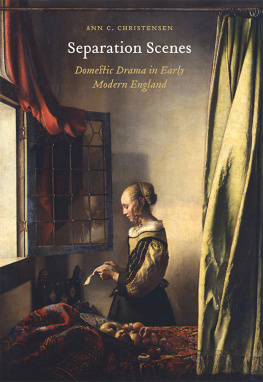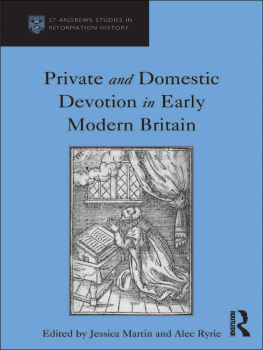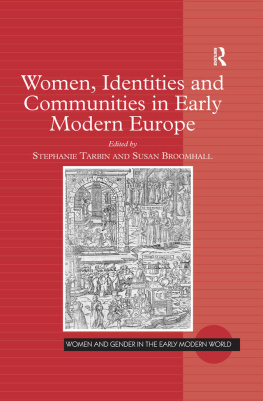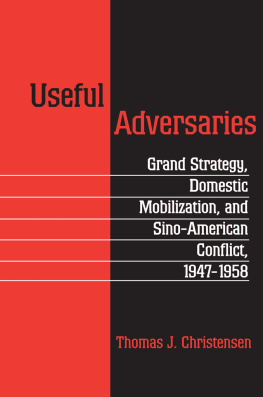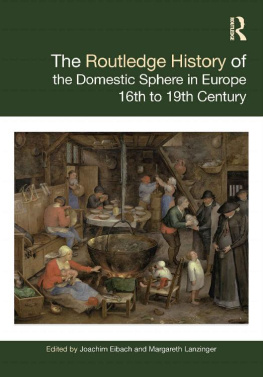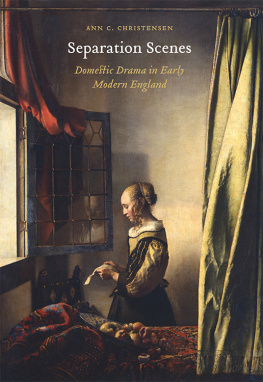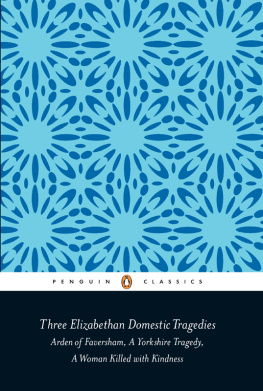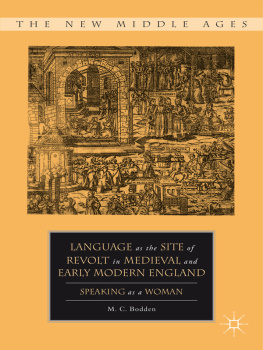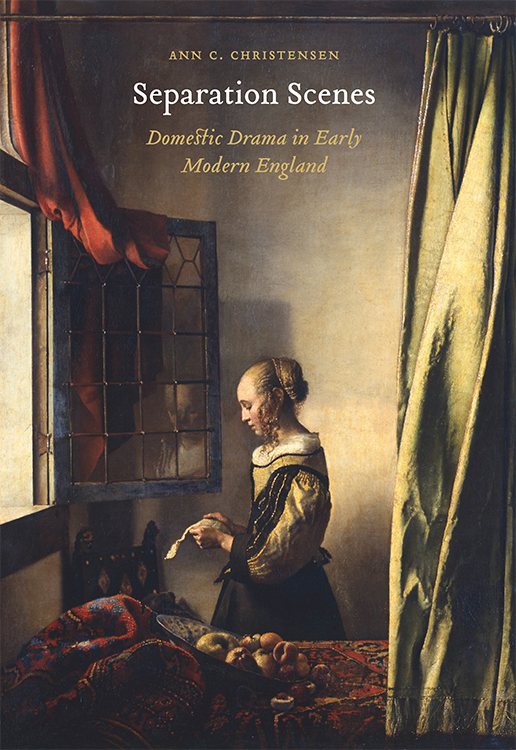Ann C. Christensen
2017 by the Board of Regents of the University of Nebraska. All rights reserved
Cover designed by University of Nebraska Press; cover image BPK , Berlin / Gemldegalerie Alte Meister / Elke Estel / Hans-Peter Klut / Art Resource, NY .
The publisher does not have any control over and does not assume any responsibility for author or third-party websites or their content.
I dedicate this book to the memory of my mother, Patricia Ann Christensen, a sitter on doorsteps.
This book got finished because the only spheres at my house are the plates we spin together. My decidedly present husband, Reagan Miller, and my three gamesome children, grown to be sweet teenagers, Wilson, Sam, and Elliot Miller, have endured my absent-presence and supported me in a million ways. Thanks, guys.
This project got started at the University of Illinois. Carol Thomas Neely, my dissertation advisor, has remained a friend and role model, as well as a shrewd reader of everything Ive written, including at least two earlier drafts of this book. For her steady stream of needful questions conveyed lucidly over email, telephone, and conference breakfasts, she deserves my warmest and most abundant thanks. I was proud to share Carol with Barbara Sebek, my faithful friend, who engages fully in the present moment, and responds rapidly to sundry urgent requests. Lori Humphrey Newcomb is another Illinois compatriot, who has been available on short notice with insight, succor, and chocolate; Lori typed up the inaugural thesis statement of this book in our hotel room at University of Maryland, while we were attending to early modern women.
This work kept going, thanks to my enduring connections with supportive groups and individuals. Lena Cowen Orlin believed in this project for a long, long time, inviting me to present on panels, sharing her work, reading mine, and begetting two Folger Institutes that sharpened my skills, Shakespeare in Performance, funded by the NEH , and Food Histories and Food Theories 15001700, with the indomitable Joan Thirsk. I thank Lena for her faith, hope, and, indeed, charity. My intellectual debt to her is evident on every page. With Lena, Fran Dolan has been an ardent supporter and also a brilliant theorist of all the things I think about a lot, including murdered husbands, household order, and wine. I admire and thank you both.
I appreciate many generous colleagues who have read portions and versions of the book and given me direction: Richmond Barbour, John Bernard, Laura Dodd, Laurie Ellinghausen, Jonathan Gil Harris, Barbara Hodgdon, Jean Howard, Margaret Hunt, Lorna Hutson, Paula McQuade, Joe Messina, Cathy Patterson, Kate Pogue, Duncan Salkeld, Meredith Skura, Amy Tigner, Lyn Tribble, and Merry Wiesner-Hanks. Conferences improved my research, because smart people model the best ways to discuss such topics as womens alliances, domestic dramas, marriage and markets, economic criticism, foodways, and pirates, to name just a few. Shakespeare Association of America seminars fostered fruitful opportunities for me to connect with Oliver Arnold, Mark Thorton Burnett, Brinda Charry, Katherine Conway, Steve Deng, Lars Engle, Anne Gill, Derrick Higginbotham, William Kerwin, Natasha Korda, Kent Lehnhof, Naomi Conn Liebler, Ania Loomba, Steve Mentz, Niamh OLeary, Jennifer Panek, Jessica Slights, Katie Stavreva, Leslie Thomson, Mary Trull, and Deborah Uman, among so many other bright lights, some now sadly absentJanet Adelman, Bernice Kliman, and Sasha Roberts. The late Group for Early Modern Cultural Studies ( GEMCS ), Attending to Women in Early Modern Europe, and the Berkshire Conference on the History of Women, aka The Berks, advanced my thinking about womens agency, identity formation, and the gender of the economy. I thank especially Michelle Dowd, Ellen Hartigan-OConnor, Karen Nelson, Allyson Proska, Adele Seeff, and Merry Wiesner-Hanks (again). Ariane Balizet, Liz Bohls, Clarissa Hinajosa, Coppelia Kahn, Naomi Liebler, Mary Beth Rose, and Jessica Slights have been thoughtful and gracious respondents and co-panelists.
I am happy to call the University of Houston my home institution, and happier yet to recognize my debt to accomplished and dedicated colleagues in the Empire Studies Research Collective, the Department of English, and the Women, Gender, and Sexuality Studies Program. For kindly enduring the early modern side of empire: Hosam Aboul-Ela, Margot Backus, Karen Fang, Dave Mazella, Auritro Mujumder, Kavita Singh, Cedric Tolliver, Jen Wingard, and Lauren Zentz. I owe a deep debt to Lynn Voskuil, whose keen eye for argument would give Occam a run for his money; she exemplifies the very best in academic friendship. The UH libraries lent me Lee Hilyer and Jesse Sharpe, whose expertise with Endnote saved me buckets of time. The absolutely invaluable Michael Osborne has been a masterful bibliographer and true friend, who often worked while I slept. The skilled support at UH from George Barr, Fang Fang, Taylor Fayle, Anthony Tello, and Rachel Weisz made it so that I could hear myself think. Phases of research and writing were funded by the University of Houston: the College of Liberal Arts and Social Sciences Limited Grants-in-Aid supported research trips to the Folger; the Women, Gender and Sexuality Studies Program awarded me a Faculty Summer Research Fellowship that paid my salary so that I could pay for child care and write; the Department of English Houstoun Professorship, along with the College of Liberal Arts and Social Sciences Book Completion Grant supported the most recent facets of this project.
I value the many expressions of hospitality and humanity that have nurtured me: the Folger Shakespeare Librarys Kathleen Lynch and Carol Brobeck. Frank Whigham, who hosted me at the University of Texas at Austin twice, where he, his students, and his colleagues were welcoming and thoughtful audiences. Alan Armstrong invited me to Gods country to discuss domesticity in

